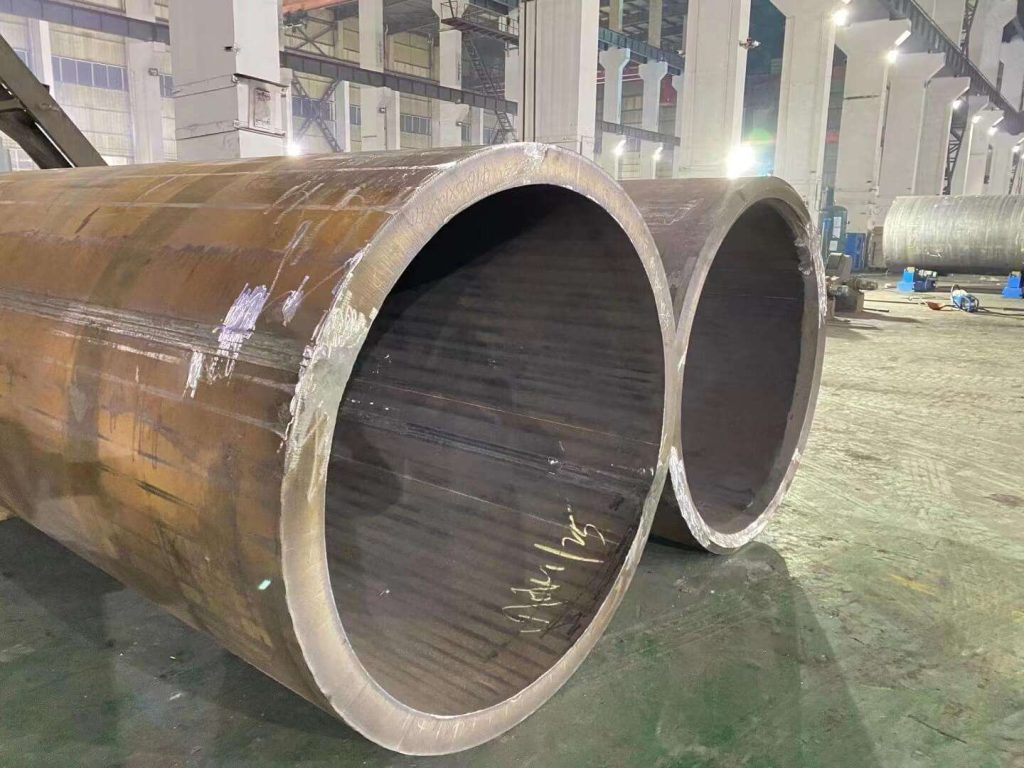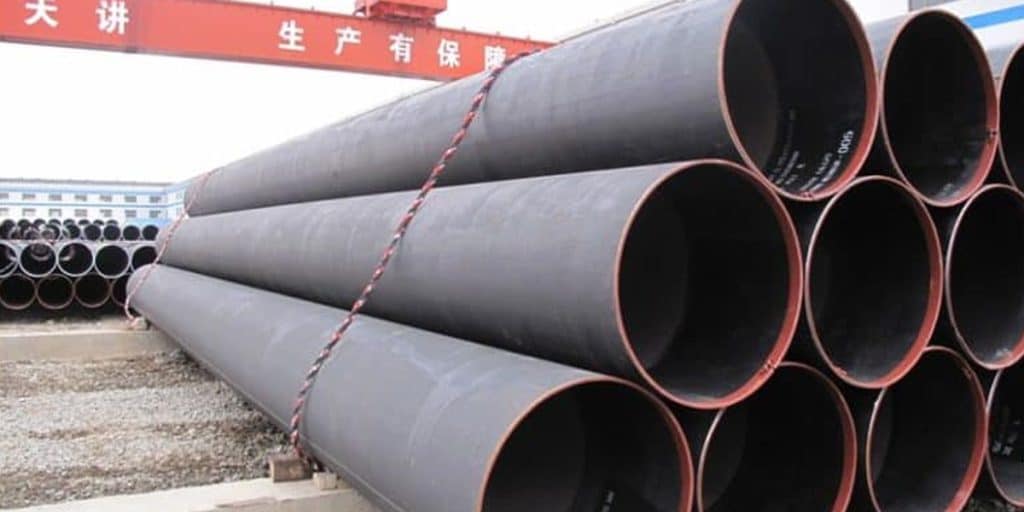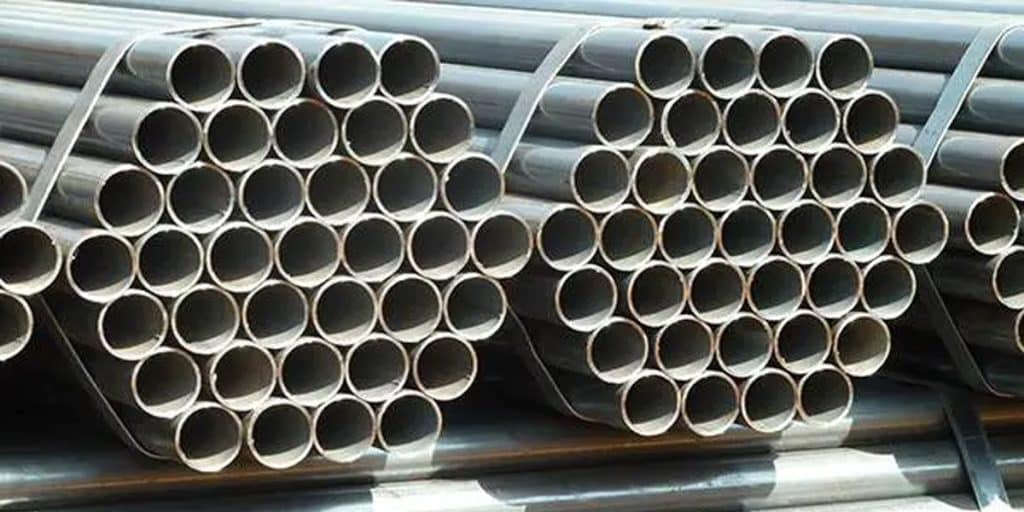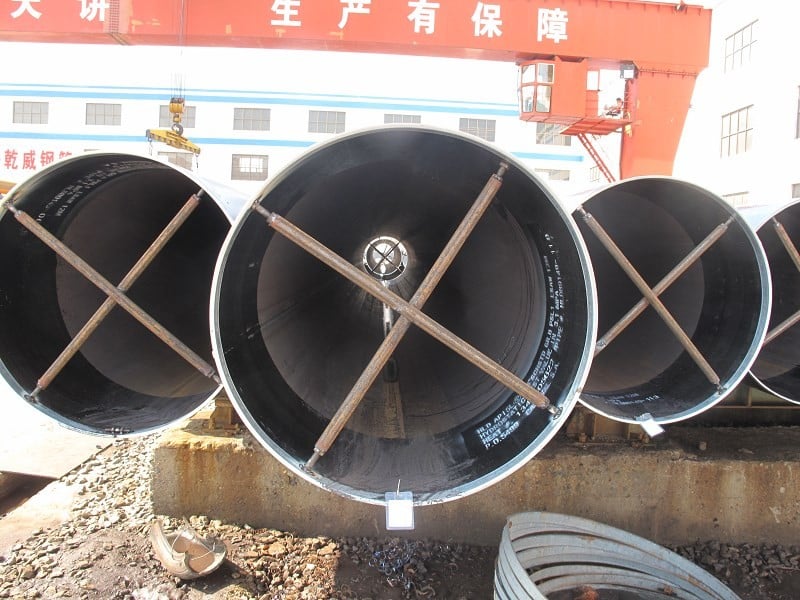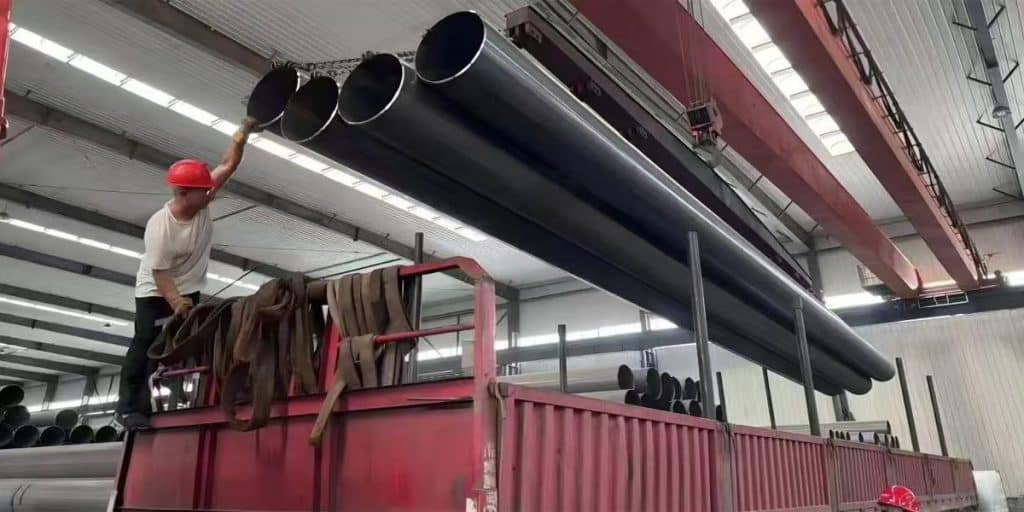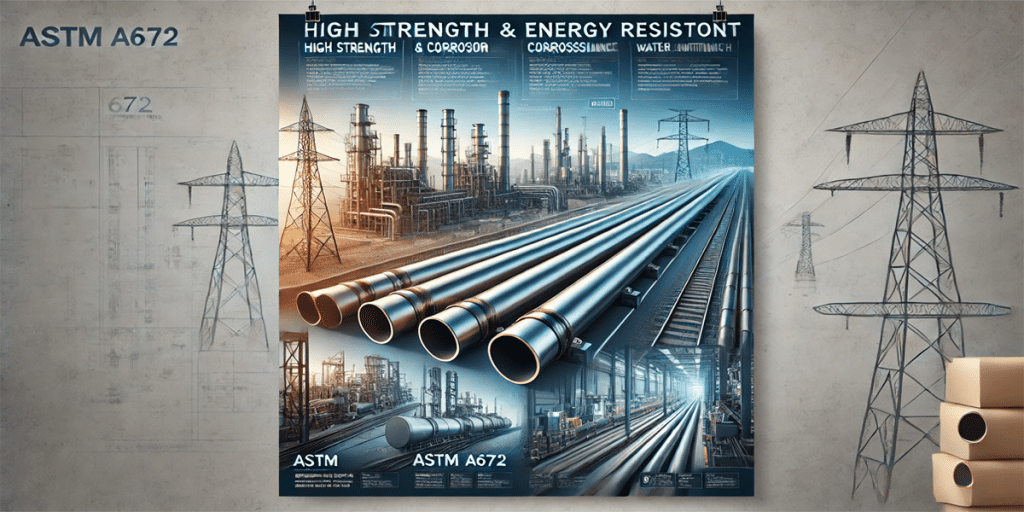- 1. Introduction to AS 1163 Steel Pipe Standard
- 2. Application of AS 1163 Steel Pipe in Bridge Infrastructure
- 3. Application of AS 1163 Steel Pipes in Road and Traffic Support Systems
- 4. Application of AS 1163 Steel Pipes in Urban Public Pipeline Systems
- 5. Why Are AS 1163 Steel Pipes Preferred in Infrastructure Projects?
As global infrastructure development accelerates, the choice of materials has become a critical factor in determining the quality and long-term stability of engineering projects. AS 1163 steel pipes, which conform to the Australian/New Zealand standards for structural steel, have gained widespread application in bridges, buildings, transportation systems, and water infrastructure due to their exceptional strength, weldability, and durability! With the industry’s increasing focus on sustainability and structural reliability, the demand for AS 1163 steel pipes continues to rise. This article will provide an in-depth look at the vital role these steel pipes play in infrastructure projects and highlight their performance advantages and application value for engineers, project managers, and procurement professionals!
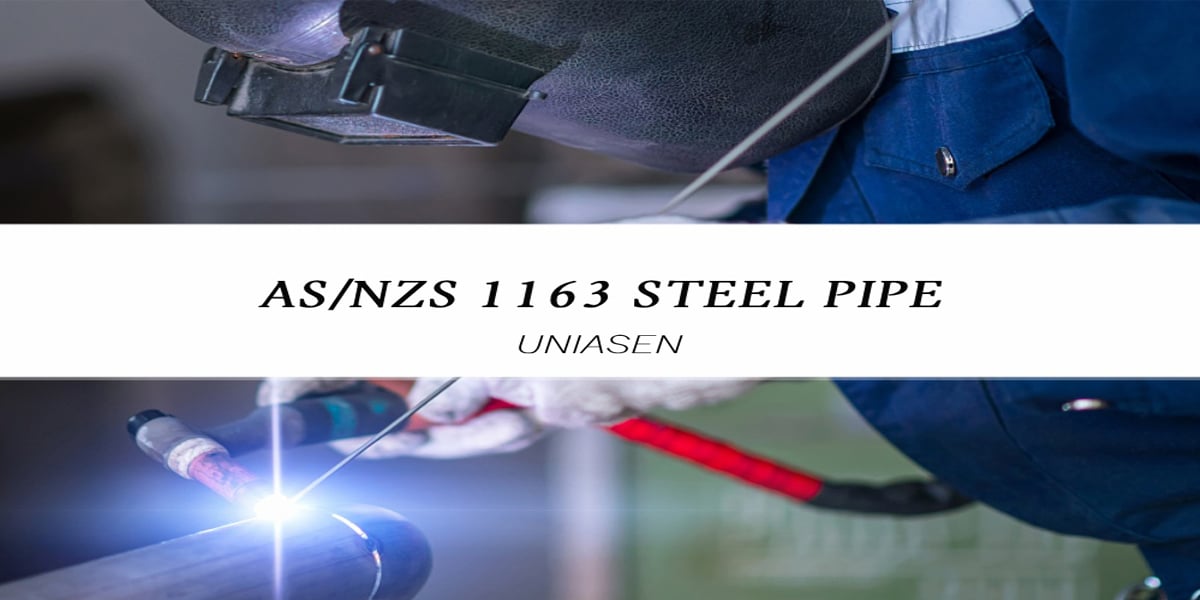
Introduction to AS 1163 Steel Pipe Standard
AS 1163 is a structural steel standard jointly developed by Australia and New Zealand, specifically governing cold-formed, electric resistance welded structural steel pipes. This standard applies to steel pipes that do not require further heat treatment and are ready for direct use in various infrastructure and engineering applications.
1. Definition
AS 1163 steel pipes are designed for load-bearing structures and are available in various cross-sectional shapes, including circular, rectangular, and square tubes. Manufactured through cold-forming and resistance welding processes, these pipes are produced under strict control of chemical composition and mechanical properties to ensure strength, consistency, and safety.
2. Grade Classification
The AS 1163 standard classifies steel pipes based on yield strength and typical application needs:
C250: Minimum yield strength of 250 MPa; ideal for light-duty structures and general municipal pipe use such as fences, frames, and small support systems.
C350: Minimum yield strength of 350 MPa; widely used for moderate load-bearing applications, such as factory structures and commercial buildings.
C450: Minimum yield strength of 450 MPa; suitable for heavy-duty applications like bridges upports, tall buildings, and large equipment frameworks.
All grades can be manufactured as structural steel pipes in circular, rectangular, and square tube forms, meeting diverse structural demands.
3. Key Performance Features
High Strength & Ductility: Delivers reliable performance under dynamic loads and structural stress.
Excellent Weldability: Compatible with various welding methods, making installation efficient.
Good Workability: Easily cut, drilled, bent, or fabricated as needed on-site.
Corrosion Resistance (Galvanizable): Often supplied as galvanized steel pipes to resist corrosion, especially for outdoor or coastal applications.
Standardized & Reliable: Ensures consistent product quality and compliance with recognized international standards.
4. Application Fields
AS 1163 steel pipes are widely used across industries, including but not limited to:
Building Structures: For frames, handrails, supports, and reinforcements in construction.
Infrastructure Projects: Bridges, highway guardrails, pedestrian overpasses, etc.
Municipal Engineering: Light poles, signagep osts, water drainage lines, and other municipal pipe systems.
Agricultural and Industrial Use: Greenhouse frames, equipment chassis, and fabrication structures.
Outdoor Installations: Sports stands, billboard supports, and protective fencing systems.
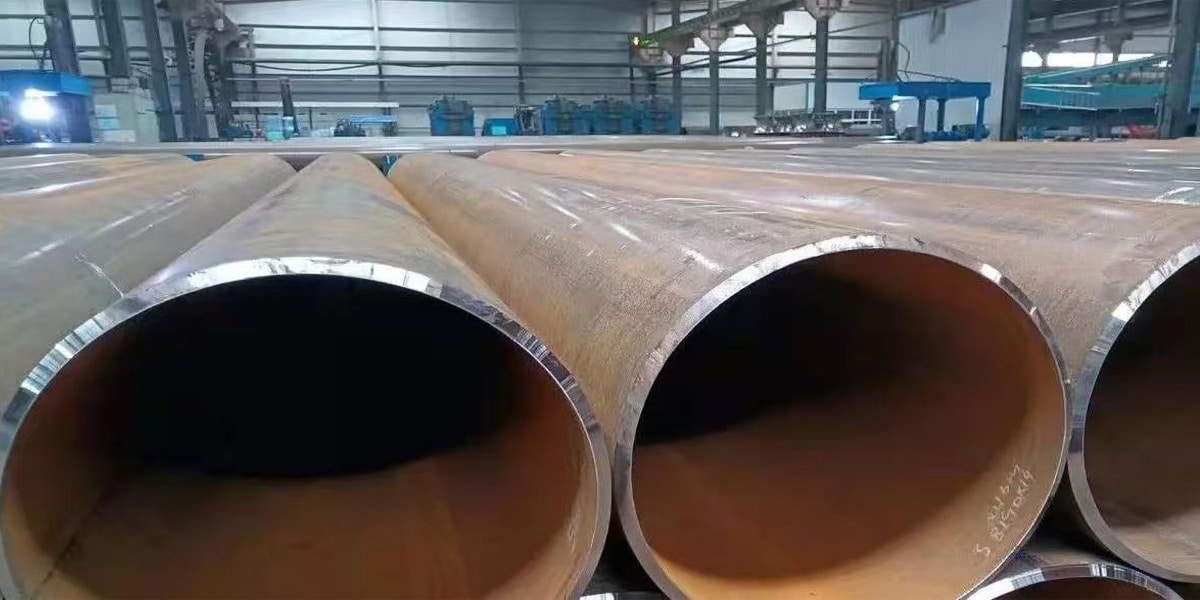
Application of AS 1163 Steel Pipe in Bridge Infrastructure
AS 1163 steel pipes, conforming to the Australian/New Zealand standard for structural steel pipes, play a crucial role in modern bridge and infrastructure construction. Based on extensive research into technical literature and engineering cases, their application advantages and features can be summarized as follows:
1. High Strength and Excellent Ductility: With stable yield strengths across grades such as C250, C350, and C450, AS 1163 steel pipes are well-suited for bridge environments subject to significant static and dynamic loads. Their excellent ductility allows for flexible processing and on-site welding during installation, contributing to the overall structural integrity and safety.
2. Versatile Cross-Sectional Shapes: In addition to round pipes, AS 1163 steel pipes are also available in square tubes and rectangular forms. These shapes are widely used in bridge structures such as beams, columns, trusses, and guardrails—meeting both load-bearing and aesthetic requirements.
3. Superior Weldability and Fabrication Ease: Produced through cold-forming and electric resistance welding, AS 1163 steel pipes offer exceptional weldability and workability. Whether for main structural assembly or secondary reinforcements, they ensure high-quality connections and optimal performance—critical in seismic or high-load environments.
4. Excellent Corrosion Resistance (Galvanized Options): In outdoor infrastructure projects, environmental exposure such as humidity or salt spray poses a corrosion risk. AS 1163 pipes are often treated with hot-dip or pre-galvanizing processes, becoming galvanized steel pipes that resist rust and deterioration—extending service life and reducing maintenance costs.
5. Wide Range of Applications
Primary Bridge Structures: Used in key load-bearing components like beams, tension rods, support frameworks, and connectors, ensuring stability under heavy traffic and environmental stress.
Auxiliary Infrastructure: Common in accessories like light poles, observation deck supports, and crash barriers, which are typically categorized under municipal pipes to meet public engineering durability standards.
6. Competitive Edge vs. Other Standards: Compared to other international standards such as ASTM, AS 1163 offers unique benefits in manufacturing precision and quality control—especially valued in Southern Hemisphere projects. Its rigorous requirements make it a trusted material in large-scale bridge developments.
Application of AS 1163 Steel Pipes in Road and Traffic Support Systems
AS 1163 steel pipes, which comply with the Australian/New Zealand standards for structural steel pipes, are widely used in road and traffic support systems. Their high strength, corrosion resistance, and variety of cross-sectional forms make them essential components in modern transportation infrastructure.
1. Traffic Signage and Lighting Systems: AS 1163 steel pipes are commonly used for manufacturing traffic sign poles and streetlight columns. Their excellent weldability and workability make installation and maintenance efficient. Additionally, galvanized steel pipes offer strong corrosion resistance, making them suitable for various climatic conditions and extending their service life.
2. Guardrails and Barrier Systems: On highways and urban roads, AS 1163 steel pipes are used in the construction of crash barriers and pedestrian separation railings. With high strength and good ductility, they can effectively absorb impact energy during collisions, protecting both vehicles and pedestrians.
3. Bridges and Elevated Structures: AS 1163 steel pipes are also applied in the supporting structures of bridges and elevated roadways. The availability of various shapes, such as square tubes and rectangular pipes, provides structural flexibility to meet diverse design and engineering needs.
4. Municipal Infrastructure: In municipal engineering, AS 1163 pipes serve a broad range of functions as municipal pipes, including drainage systems, ventilation ducts, and other essential utilities. Their standardized dimensions and reliable performance ensure efficient operation and long-term durability of public infrastructure.
Application of AS 1163 Steel Pipes in Urban Public Pipeline Systems
AS 1163 steel pipes, manufactured in accordance with Australian/New Zealand standards for structural steel pipes, are widely applied in urban public pipeline systems. Their high strength, corrosion resistance, and versatility in cross-sectional shapes make them an essential material in modern urban infrastructure.
1. Municipal Water Supply and Drainage Systems: AS 1163 steel pipes are commonly used in city water supply and drainage systems. Their excellent weldability and ease of fabrication allow for efficient installation and maintenance. Galvanized steel pipes offer strong corrosion resistance, ensuring long service life even under harsh environmental conditions.
2. Gas and Heating Networks: In urban gas distribution and heating systems, AS 1163 pipes are used to transport natural gas and hot water. Their high mechanical strength and good ductility ensure safe and reliable operation under high pressure and elevated temperatures.
3. Communication and Power Conduits: AS 1163 steel pipes are also applied in telecommunication and power cable protection systems. The availability of different profiles, such as square tubes and rectangular pipes, provides design flexibility to accommodate complex network layouts.
4. General Municipal Infrastructure: In various municipal engineering projects, AS 1163 steel pipes are used for constructing municipal pipes such as stormwater drains, ventilation ducts, and service tunnels. Their standardized dimensions and reliable performance support the long-term stability and efficiency of public systems.
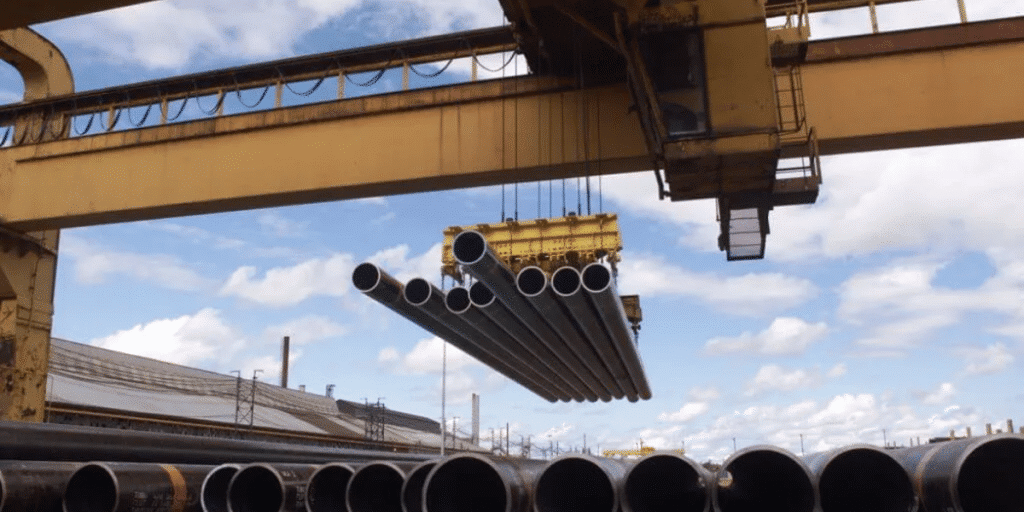
Why Are AS 1163 Steel Pipes Preferred in Infrastructure Projects?
Among various steel pipe standards, AS 1163 steel pipes stand out as a top choice for infrastructure projects such as bridges, highways, urban utility networks, and municipal pipelines. Their technical advantages and wide applicability make them a trusted material across engineering fields. Here’s why they are prioritized:
1. Compliance with Strict Structural Steel Pipe Standards: AS 1163 is an Australian/New Zealand standard specifically for structural steel pipes, covering square, rectangular, and circular sections. It regulates chemical composition, mechanical strength, dimensional tolerances, and testing procedures, ensuring each pipe meets rigorous engineering and safety requirements.
2. High Strength and Structural Stability: These pipes offer excellent yield and tensile strength, making them ideal for load-bearing applications such as bridge foundations, traffic support poles, and telecommunication towers. AS 1163 pipes deliver a combination of strength and toughness rarely matched in other structural materials.
3. Excellent Workability and Weldability: AS 1163 steel pipes are easy to cut, process, and weld on-site, helping reduce installation time and improve construction efficiency. This is especially beneficial for large-scale infrastructure developments with tight deadlines.
4. Superior Weather Resistance and Corrosion Protection: With options for galvanized steel pipe coatings, AS 1163 pipes offer strong resistance to corrosion in harsh conditions—such as coastal, humid, or polluted environments. This makes them ideal for municipal use, streetlight poles, drainage lines, and other outdoor infrastructure components.
5. Versatile Applications Across Infrastructure Sectors:From urban water and gas pipelines to guardrails, bridge structures, and support columns, AS 1163 pipes serve multiple roles. Their availability in square tubes and rectangular profiles supports aesthetic and structural needs in modern engineering design.
As cities continue to expand and infrastructure projects grow in scale and complexity, the demand for reliable, high-performance materials becomes increasingly critical. AS 1163 steel pipes have proven themselves as a cornerstone of modern infrastructure—offering strength, versatility, and long-term durability that engineers and contractors can trust. Whether used in structural frameworks, municipal pipelines, or transportation systems, AS 1163 pipes deliver consistent performance and compliance with international standards. For infrastructure projects seeking dependable, future-ready solutions, AS 1163 steel pipes remain a smart, forward-looking choice!

